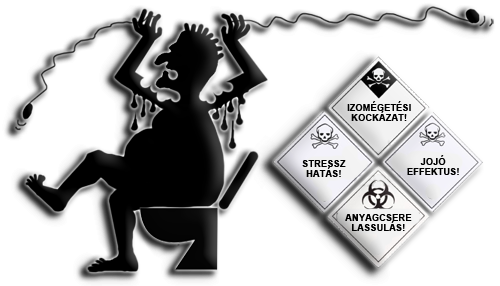
In this article, I would like to draw attention to why it is not a good idea to set too low Daily Calorie Limit and expect a quick success.
Low and very low calorie diets
During diets we reduce calorie intake so that your body burns more calories every day than you consume. After a while our body starts to use fat reserves as an energy source, which leads to weight loss.
Low calorie diets using daily 1000-1500 kcal, but especially low calorie diets (below 1000 kcal), can lead to many health problems or even weight-loss stop.
Muscle Loss
One problem is with low calorie diets is that it causes muscle loss. When we lower the calorie intake, our body tries to store all the fat tissues in order to survive and breaks down other tissues as energy sources, such as muscle tissue according to researchers at the University of Hawaii. As a result, a very low calorie diet for a long time can lead to significant muscle loss. In order to maintain our muscle mass, such diets should be avoided and it is important that we exercise as much as possible.
Depression
Researchers at the University of California at Los Angeles say that if we strictly reduce our caloric intake, it may also affect our mood. Lifestyle change can create stress and weight loss can put pressure on our emotional stability. Hunger due to low calorie or very low calorie diet causes psychological stress. As our bodies become accustomed to taking far less calories than they are burning day after day, the depression increases. To avoid depression we should consume a little fewer calories, (which still makes weight loss possible). During the day we should eat light meals and not too much snacks.
Slow metabolism
One of the major effects of a low or very low calorie diet is the slowing down of metabolic processes, which causes fewer calories burning day by day. If we only eat very little calories every day, our body gets accustomed to reduced energy input and switches to "starving" mode, researchers at Rutgers University say. This reduced metabolic process forces our body to store any available energy. This leads to a slowdown in weight loss as our body refuses to burn fat.
The possibility of gaining weight back and the yo-yo effect
In most cases, low calorie diet does not lead to long-term weight loss. When the diet is over, when we return to our normal eating habits, we quickly regain our weight because of the switch to starvation mode (the metabolic processes have slowed down). Researchers at Rutgers University say that 99% of starving diets will regain, many of them gaining back more than their starting weight. This is called yo-yo effect. To find out the best way to lose weight, it is advisable to consult a dietitian who can help you plan a diet that suits your goals.
Source: www.livestrong.com, Louise Tremblay
